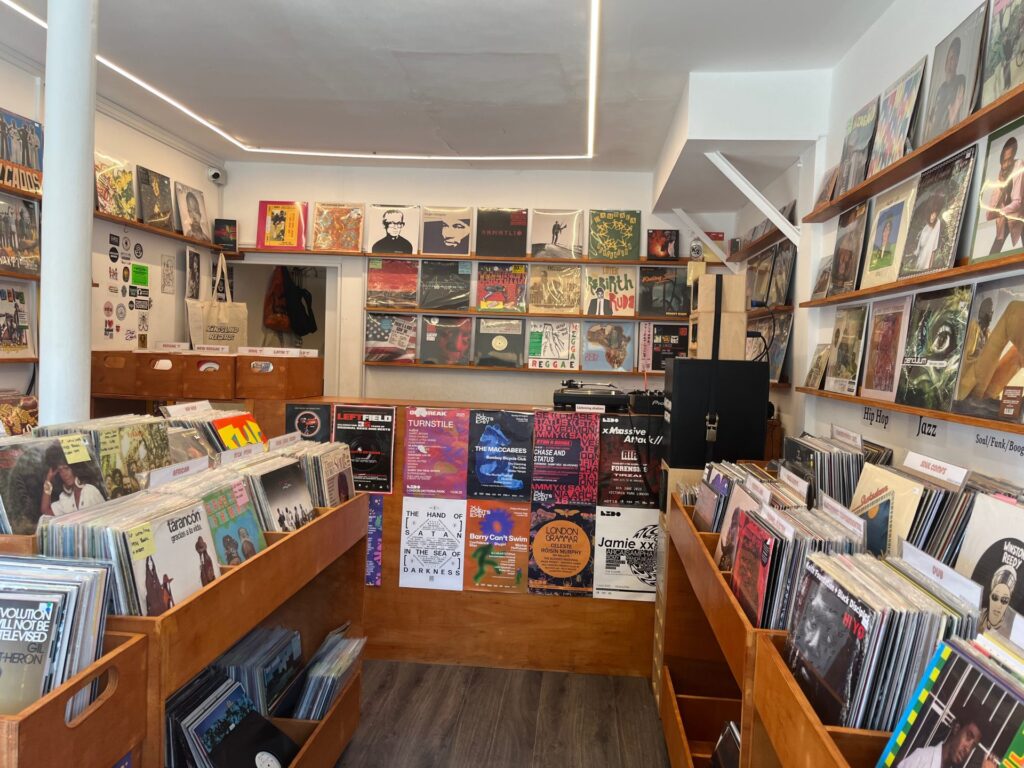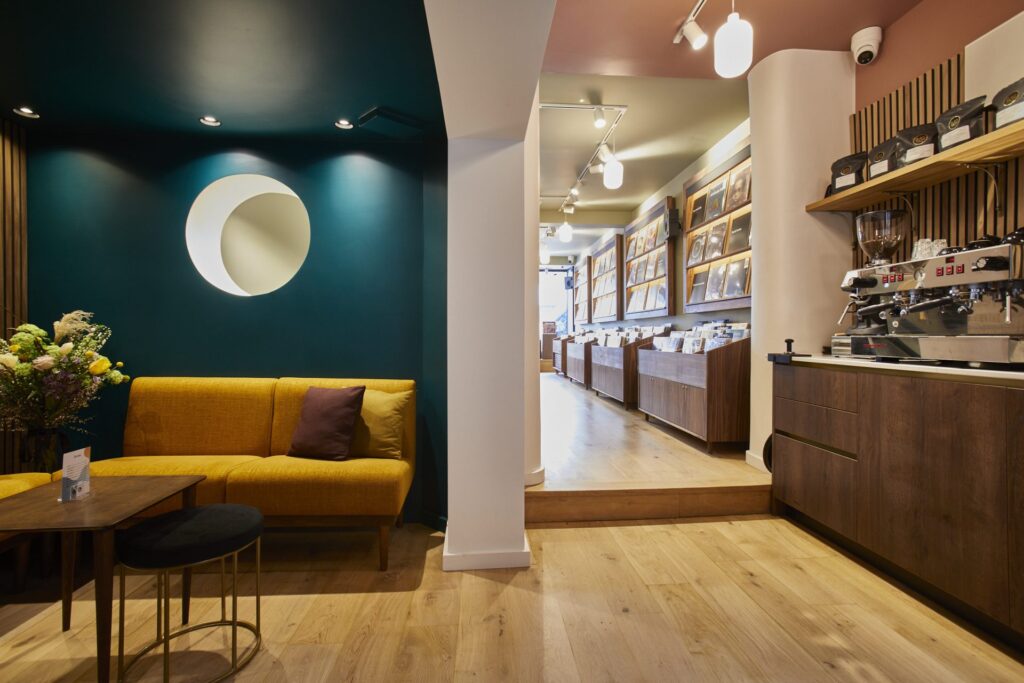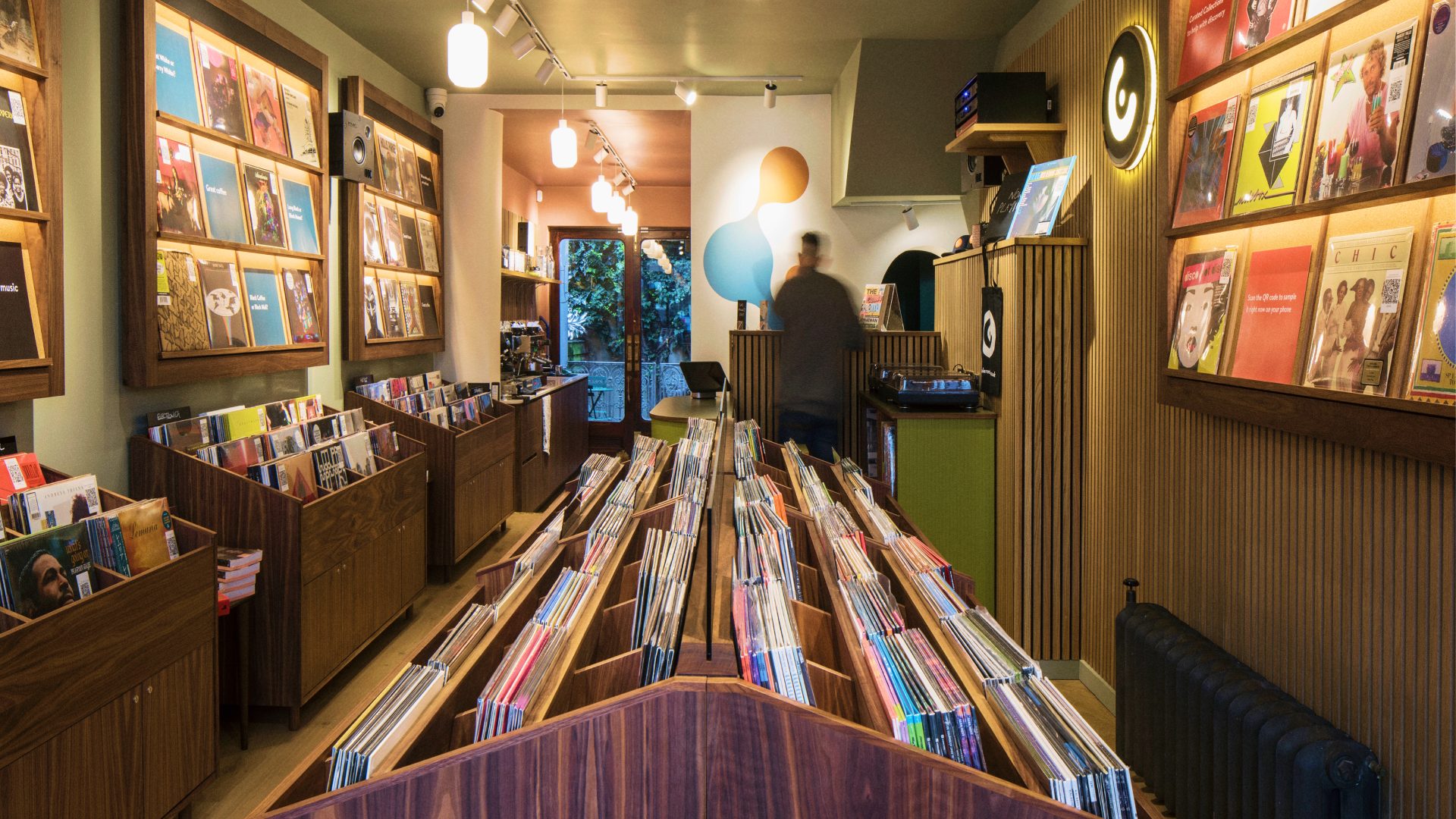Happy World Record Store Day! This is a time of the year where we acknowledge, thank and celebrate the contributions of independent stores to the music industry around the globe. But, in 2025, how do record stores function? What role do they play in helping music lovers build intimate relationships with the sounds they love? And what does the future look like for the industry as a whole?
To help us answer these questions, we hear from London-based Kingsland Records and Brighton-based Capsule Records for their thoughts on where the vinyl revival is going, crafting music communities and what it takes for an indie store to grow.

What does the future hold for record stores and physical music? Is the vinyl revival set to last?
Capsule Records: From a music fan’s point of view, there is no reason why the vinyl revival shouldn’t continue. Record stores have reignited a sense of community and are an alternative to subscription-based services. They offer a chance to meet new people, discuss and discover music and hold something physical. All whilst supporting your favourite artist in a more direct way than streaming services ever could.
However, behind the scenes, the industry is facing challenges. Since vinyl’s resurgence (sales have been annually rising since 2006), vinyl production and distribution hasn’t managed to match the demand with the required infrastructure. With vinyl only being produced at a handful of plants in very few locations, combined with global uncertainty and import costs, prices have increased at pace with demand. This scarcity is then compounded by every player. The artist, the label, distributor, pressing plant and retail. All trying to eke out a profit. To make matters worse, the prospect of new plants seems unlikely. It requires huge investment to source antiquated equipment and knowledge for a meagre return in profit.
These hikes in demand and price have been taken advantage of by major labels. They’ve used their purchasing power and influence to gain priority in pressing their records over small indie labels and artists. All whilst exploiting fans by setting high prices. To keep the vinyl resurgence on an upward trajectory, we need to see a large investment in the infrastructure. While fans have certainly shown their interest, the industry is yet to match this enthusiasm.
Kingsland Records: Vinyl never left. It just went underground for a while. It’s finally re-emerging and like everyone else, we want it to last.
What roles can record stores play in harnessing music communities and preserving music culture?
Kingsland Records: We think record stores act as the point of reference for communities to discover new music, find live events in their local area, socialise, share their music and perform live. The space we created enables cultures to intertwine, discover and share music with each other. We believe that strengthens and preserves London’s rich music culture.
Capsule Records: At Capsule Records, we focus on supporting local DJs. Brighton has one of the highest pubs-per-capita. A lot of Brighton’s scene revolves around these local pubs and bars (shout out The Windmill and Voya). To help support this scene, we launched Capsule Connect: an events calendar designed to connect music lovers with local events put on by local people. It’s been a total success as it brought together venues, DJs and fans across Brighton to create a really lovely, supportive community.
More recently, we launched our open deck weekend. We invited our punters to come down and try spinning their record collection. We’ve done three so far and the response has been utterly amazing. People far and wide have turned up to try their hand at DJing. From complete beginners to the more experienced DJs, the crowd were receptive and supportive, which made for a lovely atmosphere and hopefully gave novices the confidence to continue testing out their skills.
In collaboration with local DJ collective Taxi, we also host quarterly club nights at ALPHABET. This is a brilliant new venue in Brighton, which has a very small capacity. In the past, we’ve hosted Marcia Carr and Charlie Dark. Our next event is with Emma-Jean Thackary. These nights have gone well and we love inviting some of our favourite DJs down to play a small-cap venue and giving the people of Brighton a chance to relish in the spirit of music.
We hope that our small addition to the Brighton scene has inspired someone to start DJing or helped foster an obsession with a new artist or record.
What does it take for an indie record store to survive in 2025?
Kingsland Records: A few things, mainly trial and error which is individual to most stores. Any independent company has a big challenge surviving in this era. But record shops have a unique resource – the wealth of past, present and future music. There needs to be a priority of building communities of stores over having direct competition, but an element of competition is inevitable. Above all, you need hardworking, passionate, and outgoing staff paired with a welcoming atmosphere and a wide variety of records to adhere to everyone’s tastes.
Capsule Records: While buzzwords like innovation, persistence and diversification could be listed here, working at a record shop has always been about community. The people you meet, the stories you hear and most importantly the music you discover through face-to-face interactions. Our relationship to the surrounding community is what sustains us: time and time again we see the desire from our customers for genuine connection through music.

